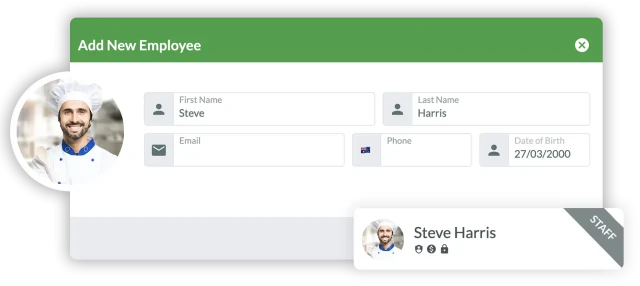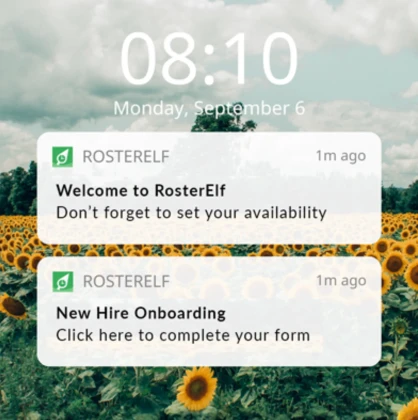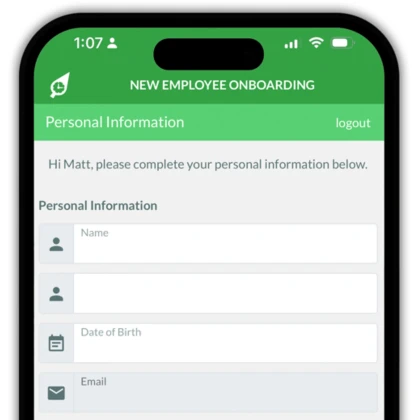Managing the onboarding process doesn’t have to be complex or time-consuming.
RosterElf’s employee onboarding software is designed to adapt to your business’s needs, offering full flexibility to configure roles, workflows, and unique requirements. Whether you’re onboarding specialised talent or handling multiple new hires, the system ensures a smooth, structured, and personalised experience for every new employee.
Why choose configurable employee onboarding software?- Custom workflows: Tailor workflows that reflect your company’s unique values and operational procedures, ensuring new hires integrate seamlessly using RosterElf’s employee onboarding software. You can standardise best practices while offering flexibility to meet specific business needs.
- Role-specific requirements: Set up customised onboarding steps to ensure each new hire receives the right training, resources, and information based on their role, setting them up for success from day one. With configurable employee onboarding, role-based tasks are handled with precision and efficiency.
- Cultural fit: Personalise the onboarding process to introduce new hires to your company’s culture. This step fosters a sense of belonging, helping employees feel welcomed and aligned with your values from the very start, boosting engagement and retention.
By leveraging RosterElf’s configurable employee onboarding software, you maintain complete control over the onboarding process, ensuring every team member has a clear, structured path to success from their first day.
Benefits of using configurable employee onboarding softwareCustomisation is key to delivering an effective onboarding experience.
RosterElf’s employee onboarding software allows you to design a process that meets your business needs, ensuring every new hire gets the best possible start.
- Tailored workflows: Design workflows that align with your operational procedures, ensuring every new hire integrates seamlessly into your business. Configurable employee onboarding software helps ensure every process is efficient and customised to fit your company’s structure.
- Specific onboarding steps: Define role-specific tasks to guarantee that employees receive the necessary training and information for their roles, boosting their performance and confidence from the outset.
- Cultural integration: Include steps that introduce new hires to your company’s culture, helping them feel connected and valued from the beginning.
Switching to configurable employee onboarding software like RosterElf streamlines compliance, efficiency, and engagement, creating a structured, supportive environment for every new hire. Whether you’re managing specialised roles or large-scale hiring, RosterElf ensures your onboarding process is fast, flexible, and easy to use.




